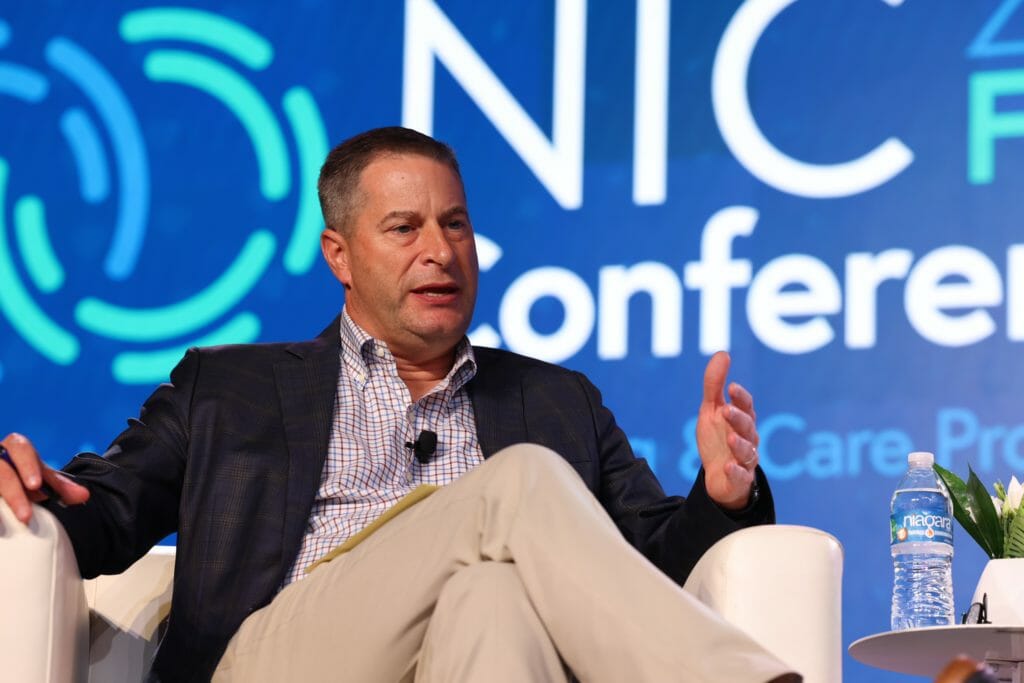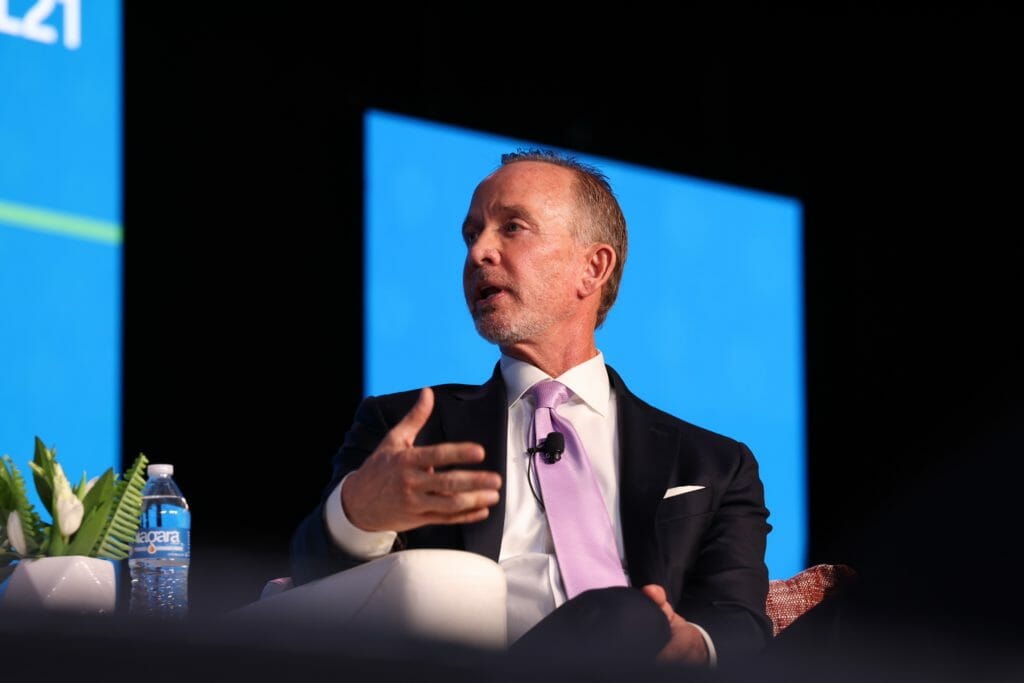
HOUSTON — For years, many investor-backed skilled nursing operators have been expected to make due on management fees that allowed them just 5% of annual revenues to cover operational costs.
If the model wasn’t dead before COVID, it might well be now, a panel of lenders, investors and operators said Monday at the NIC Fall 2021 conference.
“The 5% management fee — maybe this is too strong a statement — it’s broken,” said Chris Taylor, managing director for healthcare real estate and long-term care at Capital One. “You see a lot of different people coming up with a lot of different solutions, whether that’s participating interest or other kinds of incentives. Everybody’s recognizing there’s a problem.”
During a session on “Capital for Operations,” panelists shared how their lending and borrowing experiences were shaped by COVID, as well as how they imagine ongoing staffing challenges and an eventual recovery could reshape partnerships.
After 19 months of virtual-only events, some 2,400 operators and lenders have gathered at the biggest annual event put on by the National Investment Center for Seniors Housing & Care.

Brian Beckwith, CEO of Arcus Healthcare and formerly CEO of Formation Capital, said he found a dearth of stressed-debt opportunities when he went looking for operators to work with during the earlier days of COVID. That, he said, showed lenders “stepped up” and did the right thing to work with operators and ease financial pressures, even though their contracts didn’t outline what would happen in the face of government-required closures or dire staff shortages.
“Thinking about that and having a different perspective, I think, will put both the capital provider and the operators in a little bit of a different negotiating stance as we go forward,” he said.
Beckwith said he has already negotiated contracts that fall above and below the typical 5% management fee, offering operators more if they also share in risk.
But those still getting the average — and without a contractual ability to earn more — will face hard days ahead, according to Fee Stubblefield, founder and CEO of The Springs Living.
“With 5% as the whole world, we couldn’t do it,” he said.
Mercedes Kerr, president of Belmont Village, with senior living facilities in the U.S. and Mexico, said efforts to make the industry more transparent could revolutionize how deals get made. Today, many operating deals are fixed to narrow budget or performance hurdles, she noted.
But management contracts had to move away from that system when admissions ceased during the height of COVID. That highlighted the importance of benchmarking and data collection as the “start of an answer” for investors looking for new ways to hold operators accountable.
“Transparency as an industry … is going to be important so that we can create performance and other types of metrics or best practices that you can view vis a vis the rest of the industry, as opposed to only being able to judge your own performance on your own objectives,” Kerr said.
NIC announced Monday that it is expanding efforts to collect and share the actual rates senior care and housing residents pay for services through the addition of more certified software partners. Beth Mace, NIC’s chief economist and director of outreach, also told McKnight’s NIC MAP Vision is undertaking additional studies of Medicare beneficiary claims that could help long-term care operators spot treatment needs in specific markets and secure the financing needed to fill gaps.
That kind of data may ultimately be invaluable, but for now, Beckwith and Fee noted there’s another asset that providers may need more of, especially as federal support for skilled nursing operators evaporates: time.
“We need some more time. There’s still a recovery coming here, a recovery not only of our occupancy but also our workforce, our staff, not just the front-level folks, which are starting to come back, but it’s the middle management people that are retiring,” Fee said. “We’re not worried about COVID. We’re worried about recovering from that.”



